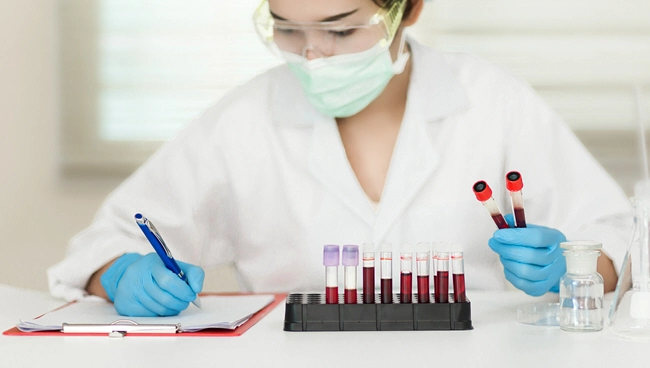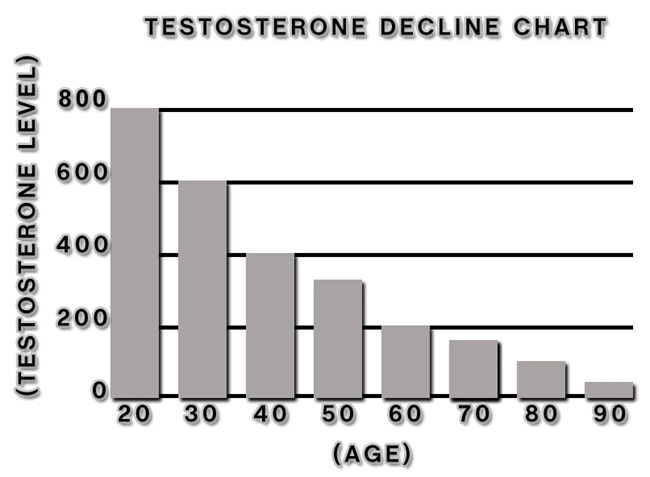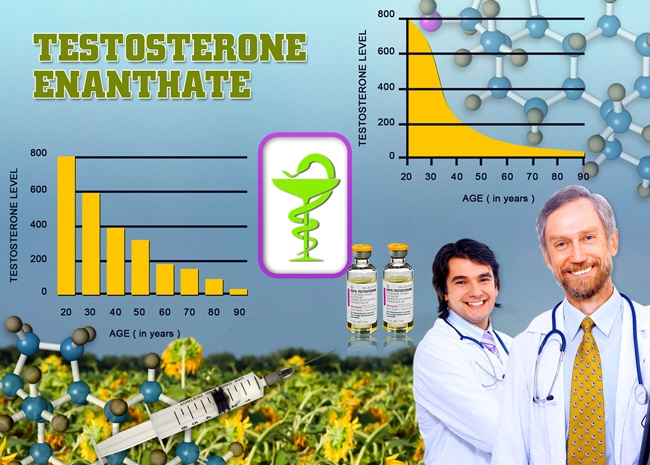
The link between water, HGH, and Testosterone
Our clinic specializes in hormone replacement therapies: Testosterone Replacement Therapy (TRT), Human Growth Hormone (HGH) Replacement Therapy, and Sermorelin Replacement Therapy.
We focus on hormone replacement therapies for one reason: THEY WORK! That’s right. The replacement of the loss of our vital hormones due to aging is an essential component of any anti-aging or longevity regimen.
And we don’t stop with administering hormone therapies. We are a holistic clinic with a multi-faceted approach to our treatment programs. Nutrition, stress reduction, exercise routines, supplements, sleep, methods of detoxification, and another topic that is all-to-often overlooked: Staying adequately hydrated.
Why water is critical to your continued good health
Water is so essential for our body’s functioning at the highest level. Even a tiny amount of dehydration (1-2%) can impair our ability to concentrate, lower our energy levels and endurance, increase cortisol (the “stress hormone”), lower testosterone, and affect our digestive system.
energy levels and endurance, increase cortisol (the “stress hormone”), lower testosterone, and affect our digestive system.
The lowered testosterone from dehydration is due to the increase in cortisol. Remember the simple equation: more cortisol = less testosterone.
Our bodies are approximately 80% water, and our cells need water to function efficiently. Here are a few of the benefits of maintaining sufficient hydration:
- Weight loss. Water is a great appetite suppressor that is especially helpful for folks who are cutting calories.
- Improved cardiovascular health by lowering LDL (the bad) cholesterol and boosting HDH (the good) cholesterol levels.
- Improved skin tone
- Sharper thinking. Dehydration has been called the number one cause of brain fog. This makes sense when considering that the brain comprises around 75% water. Hydration is crucial for delivering nutrients to the brain and toxin removal.
- Smoother digestion. Water plays a crucial role in absorbing the nutrients from our food.
- Longer stamina when exercising
- Boosting energy levels
- Easing headaches
- Flush toxins from the body
- Cellular health
- Improve gallbladder function
- Kidney stone prevention
- Improved temperature regulation
- Healthier joints. Our joints are 80% water – keep them lubricated to reduce joint aches and pains.
How to stay hydrated
The typical article of faith promoted by “the experts” is to “drink eight glasses of water daily.” However, research has concluded that things are not that simple. The key is how much water you drink enters your cells and how efficiently the cells put that water to good use. This is a case of quality over quantity.
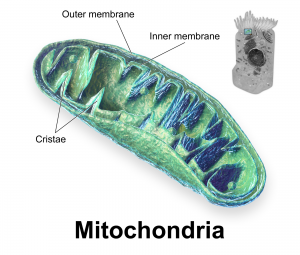 Mitochondria are defined as the powerhouse of the cells since they produce our energy. A vital ingredient in this process is the hydrogen in water is used by the mitochondria to pump out more energy.
Mitochondria are defined as the powerhouse of the cells since they produce our energy. A vital ingredient in this process is the hydrogen in water is used by the mitochondria to pump out more energy.
Hydrogen in water also acts as a “Pac-man” by gobbling up free radicals, which is crucial for lowering inflammation.
Here is where water quality plays a significant role in our cell’s ability to perform as needed. Electrodes help to boost hydration, and essential electrodes are sodium chloride, potassium, magnesium, and calcium.
What is Mineral Water?
Mineral water is also spring water because it comes from natural springs. A natural spring is a natural groundwater flow from underground sources rich in natural minerals.
The U.S. Food and Drug Administration guidelines state that water must contain 1,500 milligrams per liter of total dissolved minerals to be classified as mineral water.
Since the mineral content widely varies depending on the type of mineral water, there is no recommended daily amount. However, the two most common nutrients in mineral water are calcium and magnesium. The intake guidelines for calcium are up to 1,200 milligrams daily, while the intake guidelines for adults are up to 420 milligrams daily.
are up to 420 milligrams daily.
The Mineral Water Difference
As the name implies, mineral water contains sodium, magnesium, calcium, and sulfur minerals. Minerals play a significant role in cell absorption of water. If our cells are sluggish, absorption will be affected. Due to its mineral content, mineral water assists this absorption process.
Health risks of water
As with many beneficial nutrients, water can become “too much of a good thing.” It is possible to drink too much water, leading to a condition known as water intoxication. Gulping down copious amounts of water quickly could lower the amount of sodium in the body. This is critical since sodium’s job is to monitor the amount of water in the cells. Too much water in our cells can cause an imbalance and lead to a condition called hyponatremia.
On rare occasions, water intoxication can lead to comas and seizures and can prove fatal.
Mineral water may be a problem for people with gastroesophageal reflux disease (GERD). This is due to the carbonation of mineral water, which can lead to 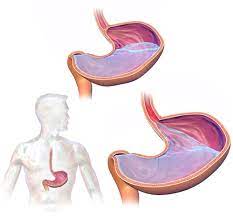 uncomfortable bloating.
uncomfortable bloating.
A common downside to drinking water is a four-letter word for health-conscious people: plastic. Bottled water from plastic bottles may contain tiny pieces of plastic debris known as microplastic. This toxic substance has been shown to damage human cells and even cause cellular death.
Another problem with plastic water bottles is a chemical called polyethylene terephthalate (PET), otherwise known as plastic #1, which is the main component of plastic bottles. PET can wreak havoc by disrupting our endocrine system, which causes an adverse cascading effect on our hormones.
Still another issue with plastic bottle water is a nasty chemical called plastic #7 that contains bisphenol A, also known as BPA. The side effects of BPA are respiratory irritation, fertility problems, and long-term exposure to BPA may cause liver and kidney damage. The issues with BPA become worse when the bottles are hot or stored for an extended time.
To avoid these issues, be sure to install a reverse osmosis water filter, drink well water, filtered water, or glass bottled water.
Our clinic will provide the guidance you need
Hormone restoration is our specialty, and we are second-to-none in this area. But we don’t stop with our hormone treatment. We are holistic in our approach, and nutrition, exercise, stress reduction, supplements, and hydration are all integral parts of our longevity and anti-aging programs.
We do not under any circumstance use a “cookie-cutter, one-size fits all” receipt to develop a treatment regimen. We consider all aspects of your medical history, goals, and current condition before making specific recommendations.
We also provide continuous monitoring during your hormone treatment. You won’t ever have to go it alone. Our instructions are precise but can always be adjusted depending on your feedback and reactions.
Contact us for a FREE, no-obligation discussion concerning Human Growth Hormone (HGH) Replacement Therapy.
Contact Us Today For A Free Consultation
Dear Patient,
Once you have completing the above contact form, for security purposes and confirmation, please confirm your information by calling us.
Please call now: 1-800-380-5339.
Welcoming You To Our Clinic, Professor Tom Henderson.

- Our HGH Clinic And Web Site Privacy Policy [Last Updated On: May 23rd, 2019] [Originally Added On: December 14th, 2017]
- Idaho HGH Clinics [Last Updated On: December 22nd, 2023] [Originally Added On: March 19th, 2018]
- Injectable HGH Prescriptions In Cheyenne, Wyoming [Last Updated On: September 19th, 2023] [Originally Added On: March 3rd, 2019]
- Injectable HGH Prescriptions In Milwaukee, Wisconsin [Last Updated On: October 4th, 2023] [Originally Added On: March 3rd, 2019]
- Injectable HGH Prescriptions In Madison, Wisconsin [Last Updated On: August 25th, 2023] [Originally Added On: March 3rd, 2019]
- Injectable HGH Prescriptions In Green Bay, Wisconsin [Last Updated On: August 1st, 2023] [Originally Added On: March 3rd, 2019]
- Injectable HGH Prescriptions In Charleston, West Virginia [Last Updated On: November 29th, 2023] [Originally Added On: March 3rd, 2019]
- Injectable HGH Prescriptions In Vancouver, Washington [Last Updated On: February 18th, 2025] [Originally Added On: March 3rd, 2019]
- Injectable HGH Prescriptions In Tacoma, Washington [Last Updated On: January 16th, 2025] [Originally Added On: March 3rd, 2019]
- Injectable HGH Prescriptions In Spokane, Washington [Last Updated On: September 27th, 2023] [Originally Added On: March 3rd, 2019]
- Injectable HGH Prescriptions In Seattle, Washington [Last Updated On: December 27th, 2023] [Originally Added On: March 3rd, 2019]
- Injectable HGH Prescriptions In Washington D.C [Last Updated On: January 15th, 2025] [Originally Added On: March 3rd, 2019]
- Injectable HGH Prescriptions In Bellevue, Washington [Last Updated On: November 24th, 2024] [Originally Added On: March 3rd, 2019]
- Injectable HGH Prescriptions In Virginia Beach, Virginia [Last Updated On: January 18th, 2025] [Originally Added On: March 3rd, 2019]
- Injectable HGH Prescriptions In Richmond, Virginia [Last Updated On: January 25th, 2025] [Originally Added On: March 3rd, 2019]
- Injectable HGH Prescriptions In Portsmouth, Virginia [Last Updated On: September 13th, 2023] [Originally Added On: March 3rd, 2019]
- Injectable HGH Prescriptions In Norfolk, Virginia [Last Updated On: December 24th, 2023] [Originally Added On: March 3rd, 2019]
- Injectable HGH Prescriptions In Newport News, Virginia [Last Updated On: September 16th, 2023] [Originally Added On: March 3rd, 2019]
- Injectable HGH Prescriptions In Hampton, Virginia [Last Updated On: January 11th, 2025] [Originally Added On: March 3rd, 2019]
- Injectable HGH Prescriptions In Chesapeake, Virginia [Last Updated On: January 9th, 2025] [Originally Added On: March 3rd, 2019]
- Injectable HGH Prescriptions In Arlington, Virginia [Last Updated On: February 6th, 2025] [Originally Added On: March 3rd, 2019]
- Injectable HGH Prescriptions In Alexandria, Virginia [Last Updated On: December 13th, 2023] [Originally Added On: March 3rd, 2019]
- Injectable HGH Prescriptions In Montpelier, Vermont [Last Updated On: October 20th, 2023] [Originally Added On: March 3rd, 2019]
- Injectable HGH Prescriptions In West Valley City, Utah [Last Updated On: September 26th, 2023] [Originally Added On: March 3rd, 2019]
- Injectable HGH Prescriptions In West Jordan, Utah [Last Updated On: July 17th, 2023] [Originally Added On: March 3rd, 2019]
- Injectable HGH Prescriptions In Salt Lake City, Utah [Last Updated On: January 28th, 2025] [Originally Added On: March 3rd, 2019]
- Injectable HGH Prescriptions In Provo, Utah [Last Updated On: November 19th, 2023] [Originally Added On: March 3rd, 2019]
- Injectable HGH Prescriptions In Wichita Falls, Texas [Last Updated On: August 27th, 2023] [Originally Added On: March 3rd, 2019]
- Injectable HGH Prescriptions In Waco, Texas [Last Updated On: July 19th, 2023] [Originally Added On: March 3rd, 2019]
- Injectable HGH Prescriptions In San Antonio, Texas [Last Updated On: February 4th, 2025] [Originally Added On: March 3rd, 2019]
- Injectable HGH Prescriptions In Round Rock, Texas [Last Updated On: December 29th, 2024] [Originally Added On: March 3rd, 2019]
- Injectable HGH Prescriptions In Richardson, Texas [Last Updated On: July 1st, 2023] [Originally Added On: March 3rd, 2019]
- Injectable HGH Prescriptions In Plano, Texas [Last Updated On: February 6th, 2025] [Originally Added On: March 3rd, 2019]
- Injectable HGH Prescriptions In Pasadena, Texas [Last Updated On: August 24th, 2023] [Originally Added On: March 3rd, 2019]
- Injectable HGH Prescriptions In Midland, Texas [Last Updated On: October 10th, 2023] [Originally Added On: March 3rd, 2019]
- Injectable HGH Prescriptions In Mesquite, Texas [Last Updated On: September 12th, 2023] [Originally Added On: March 3rd, 2019]
- Injectable HGH Prescriptions In McKinney, Texas [Last Updated On: December 4th, 2023] [Originally Added On: March 3rd, 2019]
- Injectable HGH Prescriptions In McAllen, Texas [Last Updated On: August 29th, 2023] [Originally Added On: March 3rd, 2019]
- Injectable HGH Prescriptions In Lubbock, Texas [Last Updated On: November 14th, 2023] [Originally Added On: March 3rd, 2019]
- Injectable HGH Prescriptions In Lewisville, Texas [Last Updated On: January 29th, 2025] [Originally Added On: March 3rd, 2019]
- Injectable HGH Prescriptions In Laredo, Texas [Last Updated On: October 15th, 2023] [Originally Added On: March 3rd, 2019]
- Injectable HGH Prescriptions In Killeen, Texas [Last Updated On: June 25th, 2023] [Originally Added On: March 3rd, 2019]
- Injectable HGH Prescriptions In Irving, Texas [Last Updated On: February 9th, 2025] [Originally Added On: March 3rd, 2019]
- Injectable HGH Prescriptions In Houston, Texas [Last Updated On: September 4th, 2023] [Originally Added On: March 3rd, 2019]
- Injectable HGH Prescriptions In Grand Prairie, Texas [Last Updated On: January 17th, 2025] [Originally Added On: March 3rd, 2019]
- Injectable HGH Prescriptions In Garland, Texas [Last Updated On: February 14th, 2025] [Originally Added On: March 3rd, 2019]
- Injectable HGH Prescriptions In Fort Worth, Texas [Last Updated On: October 6th, 2023] [Originally Added On: March 3rd, 2019]
- Injectable HGH Prescriptions In El Paso, Texas [Last Updated On: June 20th, 2023] [Originally Added On: March 3rd, 2019]
- Injectable HGH Prescriptions In Denton, Texas [Last Updated On: November 6th, 2023] [Originally Added On: March 3rd, 2019]
- Injectable HGH Prescriptions In Dallas, Texas [Last Updated On: December 31st, 2024] [Originally Added On: March 3rd, 2019]
- Injectable HGH Prescriptions In Corpus Christi, Texas [Last Updated On: December 23rd, 2024] [Originally Added On: March 3rd, 2019]
- Injectable HGH Prescriptions In Carrollton, Texas [Last Updated On: November 25th, 2024] [Originally Added On: March 3rd, 2019]
- Injectable HGH Prescriptions In Brownsville, Texas [Last Updated On: February 4th, 2025] [Originally Added On: March 3rd, 2019]
- Injectable HGH Prescriptions In Beaumont, Texas [Last Updated On: August 30th, 2023] [Originally Added On: March 3rd, 2019]
- Injectable HGH Prescriptions In Austin, Texas [Last Updated On: December 21st, 2024] [Originally Added On: March 3rd, 2019]
- Injectable HGH Prescriptions In Arlington, Texas [Last Updated On: January 13th, 2025] [Originally Added On: March 3rd, 2019]
- Injectable HGH Prescriptions In Amarillo, Texas [Last Updated On: July 22nd, 2023] [Originally Added On: March 3rd, 2019]
- Injectable HGH Prescriptions In Abilene, Texas [Last Updated On: January 5th, 2025] [Originally Added On: March 3rd, 2019]
- Injectable HGH Prescriptions In Nashville, Tennessee [Last Updated On: June 22nd, 2023] [Originally Added On: March 3rd, 2019]
- Injectable HGH Prescriptions In Murfreesboro, Tennessee [Last Updated On: June 28th, 2023] [Originally Added On: March 3rd, 2019]
- Injectable HGH Prescriptions In Memphis, Tennessee [Last Updated On: August 15th, 2023] [Originally Added On: March 3rd, 2019]
- Injectable HGH Prescriptions In Knoxville, Tennessee [Last Updated On: August 8th, 2023] [Originally Added On: March 3rd, 2019]
- Injectable HGH Prescriptions In Clarksville, Tennessee [Last Updated On: February 2nd, 2025] [Originally Added On: March 3rd, 2019]
- Injectable HGH Prescriptions In Chattanooga, Tennessee [Last Updated On: January 29th, 2025] [Originally Added On: March 3rd, 2019]
- Injectable HGH Prescriptions In Sioux Falls, South Dakota [Last Updated On: December 25th, 2024] [Originally Added On: March 3rd, 2019]
- Injectable HGH Prescriptions In Columbia, South Carolina [Last Updated On: February 2nd, 2025] [Originally Added On: March 3rd, 2019]
- Injectable HGH Prescriptions In Charleston, South Carolina [Last Updated On: January 31st, 2025] [Originally Added On: March 3rd, 2019]
- Injectable HGH Prescriptions In Providence, Rhode Island [Last Updated On: January 30th, 2025] [Originally Added On: March 3rd, 2019]
- Injectable HGH Prescriptions In Pittsburgh, Pennsylvania [Last Updated On: December 3rd, 2023] [Originally Added On: March 3rd, 2019]
- Injectable HGH Prescriptions In Erie, Pennsylvania [Last Updated On: January 4th, 2025] [Originally Added On: March 3rd, 2019]
- Injectable HGH Prescriptions In Allentown, Pennsylvania [Last Updated On: November 4th, 2023] [Originally Added On: March 3rd, 2019]
- Injectable HGH Prescriptions In Salem, Oregon [Last Updated On: January 31st, 2025] [Originally Added On: March 3rd, 2019]
- Injectable HGH Prescriptions In Portland, Oregon [Last Updated On: February 1st, 2025] [Originally Added On: March 3rd, 2019]
- Injectable HGH Prescriptions In Gresham, Oregon [Last Updated On: January 30th, 2025] [Originally Added On: March 3rd, 2019]
- Injectable HGH Prescriptions In Eugene, Oregon [Last Updated On: January 27th, 2025] [Originally Added On: March 3rd, 2019]
- Injectable HGH Prescriptions In Tulsa, Oklahoma [Last Updated On: December 15th, 2023] [Originally Added On: March 3rd, 2019]
- Injectable HGH Prescriptions In Oklahoma City, Oklahoma [Last Updated On: June 6th, 2023] [Originally Added On: March 3rd, 2019]
- Injectable HGH Prescriptions In Norman, Oklahoma [Last Updated On: October 19th, 2023] [Originally Added On: March 3rd, 2019]
- Injectable HGH Prescriptions In Toledo, Ohio [Last Updated On: September 17th, 2023] [Originally Added On: March 3rd, 2019]
- Injectable HGH Prescriptions In Dayton, Ohio [Last Updated On: September 15th, 2023] [Originally Added On: March 3rd, 2019]
